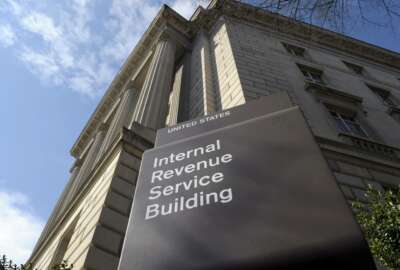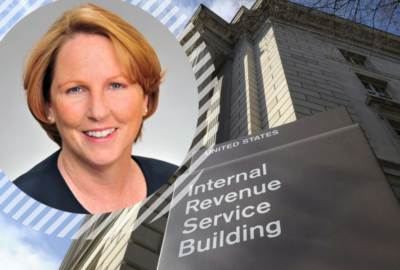

The IRS is putting some of a recent $80 billion investment from Congress into improved customer experience during this year's filing season, but the agency face...
The IRS is putting some of a recent $80 billion investment from Congress into improved customer experience during this year’s filing season, but the agency faces a long road to dig out from more than a decade of underfunding.
The National Treasury Employees Union, as part of its legislative conference this week, sees IRS funds in the Inflation Reduction Act as a crucial part of rebuilding the agency’s workforce and modernizing its legacy IT.
NTEU National President Tony Reardon told reporters on Monday that the legislation puts the IRS in the rare position of having “good news” to share about the state of its budget.
“The investments that are coming from the Inflation Reduction Act are needed in the worst way,” Reardon said.
The IRS has focused on first spending this money to improve its level of customer experience to taxpayers. The agency answered about 13% of calls from taxpayers seeking help with their returns last year, but in this year’s filing season, the IRS has been answering about 90% of incoming calls.
NTEU National Vice President Doreen Greenwald said the IRS still needs to staff up Taxpayer Assistance Centers and is also looking ahead to next year’s filing season to make additional improvements to taxpayer service.
“The initial actions right now are to just get things going back to a normal level before they can even look at what’s going to happen with the funding,” Greenwald said.
The IRS expects to soon release a plan outlining how the agency plans to spend the rest of the $80 billion.
While NTEU expects the IRS to encounter a “challenging environment” with a Republican majority in the House, Reardon said he doesn’t expect Republican lawmakers will try to claw back the $80 billion for the IRS as part of upcoming debt ceiling negotiations.
“I’ve sort of maintained all along that they’re not going to be successful really taking the money directly from the Inflation Reduction Act. But instead, what they’ll do is, over time, continue to attack to the extent that they can the annual appropriations and sort of, in a less direct way, claw back the money,” Reardon said.
The IRS with its new resources is looking to significantly ramp up hiring, and seeing some early successes. The agency hired about 5,000 customer service representatives last year, and is expected to hire just as many this year.
“The benefit of having this funding is so often, the IRS has not been able to make strategic plans to rebuild and restructure, both in staffing and IT and customer service, because year after year, their funding was cut, and many times they couldn’t even fill the valid positions that they needed to serve as taxpayers,” Greenwald said.
IRS has been successful hiring customer service representatives because those jobs generally pay better than submission processing positions. Greenwald said the IRS is also able to offer telework to customer service representatives, which helps the agency compete with private-sector employers that are often able to pay more.
“If you take away those kinds of benefits from people, still not pay them what they’re getting at a Target or a Walmart, good luck filling these jobs,” she said.
Reardon said the IRS should be able to rely on governmentwide tools such as hiring incentives and Special Salary Rates for positions that are harder to fill. Reardon said NTEU has made these recommendations to both IRS and Treasury Department leadership.
“There is often a lack of knowledge in human capital office operations,” Reardon said. “They don’t understand how those things work and how they can actually put those in place and implement them. And so I think it’s important, because if you’re going to get people hired — and they need to — you’ve got to be able to do some of those kinds of things.”
Greenwald said the IRS will also need to staff up its human capital office to sustain long-term hiring efforts across the agency.
“They’ve relied heavily on direct hire events to fill things quickly. But to be a successful organization going forward, you have to have an organization that can do that routinely, and in a reasonable period of time,” Greenwald said.
Doreen said the IRS has made “marked improvements” to taxpayer service this year, and that the agency, dealing with fewer paper-based tax returns this year, is getting refund checks out to taxpayers more quickly.
However, Reardon said it’s going to take more time for the IRS time to resolve some of its challenges.
“It is going to be, and is imperative, that the IRS level-set people’s expectations. So you’ve got access to all this money, it’s doesn’t mean that tomorrow, all the problems are solved. It’s going to take time to fix and rebuild,” Reardon said.
Copyright © 2024 Federal News Network. All rights reserved. This website is not intended for users located within the European Economic Area.
Jory Heckman is a reporter at Federal News Network covering U.S. Postal Service, IRS, big data and technology issues.
Follow @jheckmanWFED



